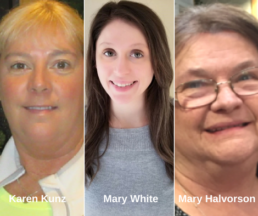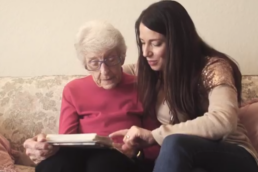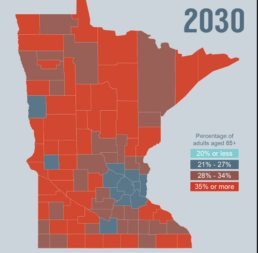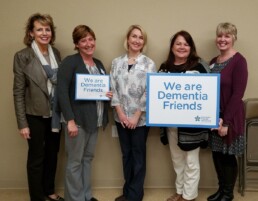Two Ecumen Caregivers and a Memory Care Resident Honored by LeadingAge MN
Two employees of Ecumen communities and a memory care resident were recently honored at LeadingAge Minnesota’s “Stars Among Us” awards ceremony in St. Paul.
We All Prosper When Seniors Stay in Their Communities
Millie, a resident of Ecumen Detroit Lakes, talks about the true meaning of living in her community.
A Briefing on Alzheimer’s That’s Full of Hope and Prevention Ideas
You can change your brain's destiny says Lisa Genova, a neuroscientist and the author of Still Alice,
Honoring Ecumen's Amazing Life Enrichment Staff
It's National Activity Professionals Week, and Ecumen recognizes and honors its Life Enrichment staff -- the people who specialize in bringing smiles to our residents.
The Aging of Minnesota: An Interactive View
Here's a graphic way to understand how fast Minnesota is aging.
Become a Dementia Friend – A Global Movement To Create Dementia Friendly Communities
A group of Ecumen employees recently became Dementia Friends – part of a global movement striving to create more dementia friendly communities by changing the way people think, act and talk about dementia.
Kids Who Spend Quality Time with Grandparents Less Ageist
Researchers in Belgium found that children and teens who spend quality time with their grandparents are less likely to have negative stereotypical attitudes told the elderly.
Proudly Celebrating Martin Luther King Jr. Day: January 15, 2018
Ecumen proudly celebrates Martin Luther King Jr. Day. We especially thank Dr. King for the inspiration he gives us in our fight against ageism.
Un-Resolve To Be Better: A Case for Opting Out of New Year’s Resolutions
Dr. Ken Druck makes a case for un-resolutions in the New Year.
Some Tips if You’re Thinking about Asking an Aging Parent to Move in with You
When an aging parent moves in with you, there are big changes in your household dynamics.






